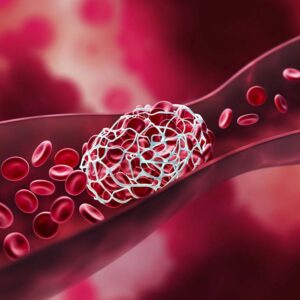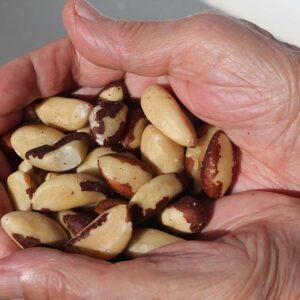
Ordinary Gourd Squashes Cancer and Heart Disease
Dear Living Well Daily Reader,
Pasta is the best.
Well, the best at making you gain weight, sending your blood sugar into orbit and making you feel sluggish, bloated and gross.
But who can say no to a piping-hot bowl of noodles drowned in a robust, garlicky red sauce?
I know I can’t.
Luckily, there’s a way for you to have your pasta and eat it too — just without the high blood sugar, extra pounds and bad feelings.
Plus, this tasty and fresh pasta replacement is also rich in heart-healthy B vitamins, folate and loads of antioxidants that fight cancer and protect your heart — unlike the carb-filled wheat versions.
So what is this delightful, healthy noodle substitute?
Spaghetti squash.
And the best part — it’s easy to make and is now in season!
![]() More Powerful Than Pasta
More Powerful Than Pasta
Because its flesh separates into spaghetti-like strands when cooked, this fall treat is known as spaghetti squash or noodle squash.
Except unlike its nutritionally inferior namesake, it comes loaded with cancer-busting antioxidants like beta-carotene and vitamin A. These powerful compounds help protect your body from oxidative stress that comes with age.
Studies show that eating vegetables with high beta-carotene and vitamin A content can help your body fend of cancer and heart disease while also boosting your immune system and protecting your eyes. Plus, beta-carotene helps cells communicate better with each other, which could help prevent the growth of cancer.
In addition, spaghetti squash is rich in heart-protective B vitamins and folate. These nutrients help you strengthen blood vessel walls and can also promote healthy circulation. Not to mention spaghetti squash is a good source of potassium, the mineral that assists in proper nerve and muscle function, which is vital to heart health.

Source: Winnedixie.com/
But what’s most incredible about this nutrient-packed squash is it also contains powerful fatty acids that are typically found only in nuts or animal food sources like fish and grass-fed beef — omega-3s.
Omega-3s are proven to combat inflammation and arterial stiffness, which helps promote a healthy heart and can lead to better brain function. (But you should know that the amount of omega-3s found in spaghetti squash doesn’t meet your daily needs, so be sure to eat other omega-3-rich foods or take omega-3 supplements.)
When you combine all of these amazing health benefits, it seems like ditching pasta for spaghetti squash is a no-brainer!
![]() How to Get Your Hands on the Gourd
How to Get Your Hands on the Gourd
So where can you find a spaghetti squash?
Since these squashes are harvested in the early fall through the winter, we are almost in peak season.
They are available at farmers markets, produce stands and most retail grocery stores. If you own a share in a CSA, you can contact your farmer or check the farm chart to see if you’ll be getting one soon.
Once you get one, you’ll have to cook it before you can use the noodle-like flesh as a pasta substitute. Luckily, this is very easy to do!
Here’s how to roast a 3-pound spaghetti squash:
- Preheat oven to 400 degrees F.
- Rinse squash thoroughly and pat dry.
- Cut squash in half lengthwise, remove seeds with a spoon.
- Place cut sides down in a baking dish. Bake for 35–45 minutes or until tender.
- Remove and let cool enough to handle comfortably.
- Hold squash in one hand and use a fork to loosen fibers. Scrape squash strands out with a spoon.

Source: recipehubs.com
You can serve the squash as is or toss it with a bit of butter. Or if you’re really craving pasta, cover it with your favorite fresh-made pasta sauce and grated cheese.
Uncooked squashes can be stored in a cool, dry place for up to two months. Cooked squash can be stored in your refrigerator for up to four days or frozen for later use.
Live well,

Natalie Moore
Managing editor, Living Well Daily
[1] Science on Your Plate: The Science of Squash
[2] What Is Spaghetti Squash Good For?
[3] BENEFITS OF SPAGHETTI SQUASH
[4] What’s New and Beneficial about Winter Squash
Written By Natalie Moore
Natalie Moore is a dedicated health researcher with a passion for finding healthy, natural, and science-based solutions. After a decade of direct healthcare experience in western and natural medicine, she was involved in public health research before joining Living Well Daily.
View More Free Articles
Mailbag: Diarrhea Remedies That Really Work
“I have had diarrhea for 6 months. I’m going crazy and don’t know how to stop it! Please help!” – Can’t Stop Running Dear Can’t Stop, Few things disrupt life like battling a bout of diarrhea. Diarrhea is typically defined as having three or more loose, watery stools daily. If you experience this for over...
Take the SHORTER Path to Dramatically Better Health
Are you tired of fitness gurus preaching the virtues of 5 AM workouts and pushing Olympic-level training regimens? Their narrative can feel exhausting and entirely unattainable. But before you toss in the towel completely, I’ve got news that might just put a spring back into your step. A groundbreaking new study reveals that the key...
Unexpected Perks of Your Coffee Habit Revealed!
We all know that the first cup of coffee in the morning can FEEL like a lifesaver. But what if it might actually BE saving your life? A groundbreaking new study suggests that your daily coffee habit could be protecting you from not just one but multiple chronic diseases. Let’s pour over this fascinating research…...
The TRUTH About Diabetes Drugs and Brain Aging
You’ve probably seen the gushing headlines… Most say something like, “Common diabetes drug protects the brain against aging!” And let’s face it, that sounds fantastic. After all, who doesn’t want to keep their brain young and in tip-top shape? The headlines refer to the results of a new study that suggests the widely prescribed type...
Hidden Smartphone Danger Puts You at Risk
Remember when we thought cell phones were just something for young folks to obsess over? Back when we were convinced they were nothing more than a passing fad? Well, times certainly have changed. Now, most people… including many of us older folks… have jumped on the smartphone bandwagon. Heck, some of us are practically as...
Preserve Your Mobility with “Agile Aging” Exercises
Aging has a way of humbling us. You lose hair where you want to keep it—and often end up growing it where you don’t. With every passing year, your eyesight fades, and your waistline expands. And as your once quick pace begins to slow, you fear developing the dreaded “senior shuffle.” But here’s the thing....
Yes, Lazy Saturday Lie-Ins Can BOOST Your Health
Are you burning the midnight oil during the week and catching up on sleep on weekends? Well, I’ve got some news that might help you feel less guilty about those lazy Saturday mornings. A new study suggests that weekend lie-ins might be doing far more than just helping you feel refreshed. Experts say they could...
Mailbag: 7 Hidden Culprits Behind Your Weight Gain
“Why am I gaining weight, even though I am watching what I am eating?” – Battling the Bulge Dear Battling, Gaining weight when you’re not trying to is frustrating. And it just gets worse as we age… often regardless of our diet. The truth is that various factors can promote weight gain even when you’re...
Popular Artificial Sweetener Linked to Dangerous Heart Risk
Remember when erythritol was the darling of the health food world? Well, this popular sugar substitute might not be as sweet a deal as we were led to believe… A shocking new study reveals a dark side to this widely used artificial sweetener. It turns out erythritol is associated with a dangerous—and even deadly—heart risk....
Cracking the Code on Chronic Inflammation
Inflammation and obesity are the evil tag team at the heart of nearly every major disease we face—from diabetes to obesity. What starts as a normal, healthy process to fend off dangerous invaders can quickly fan into the flames of chronic inflammation… and that includes in your gut. The trouble is almost no one has...









